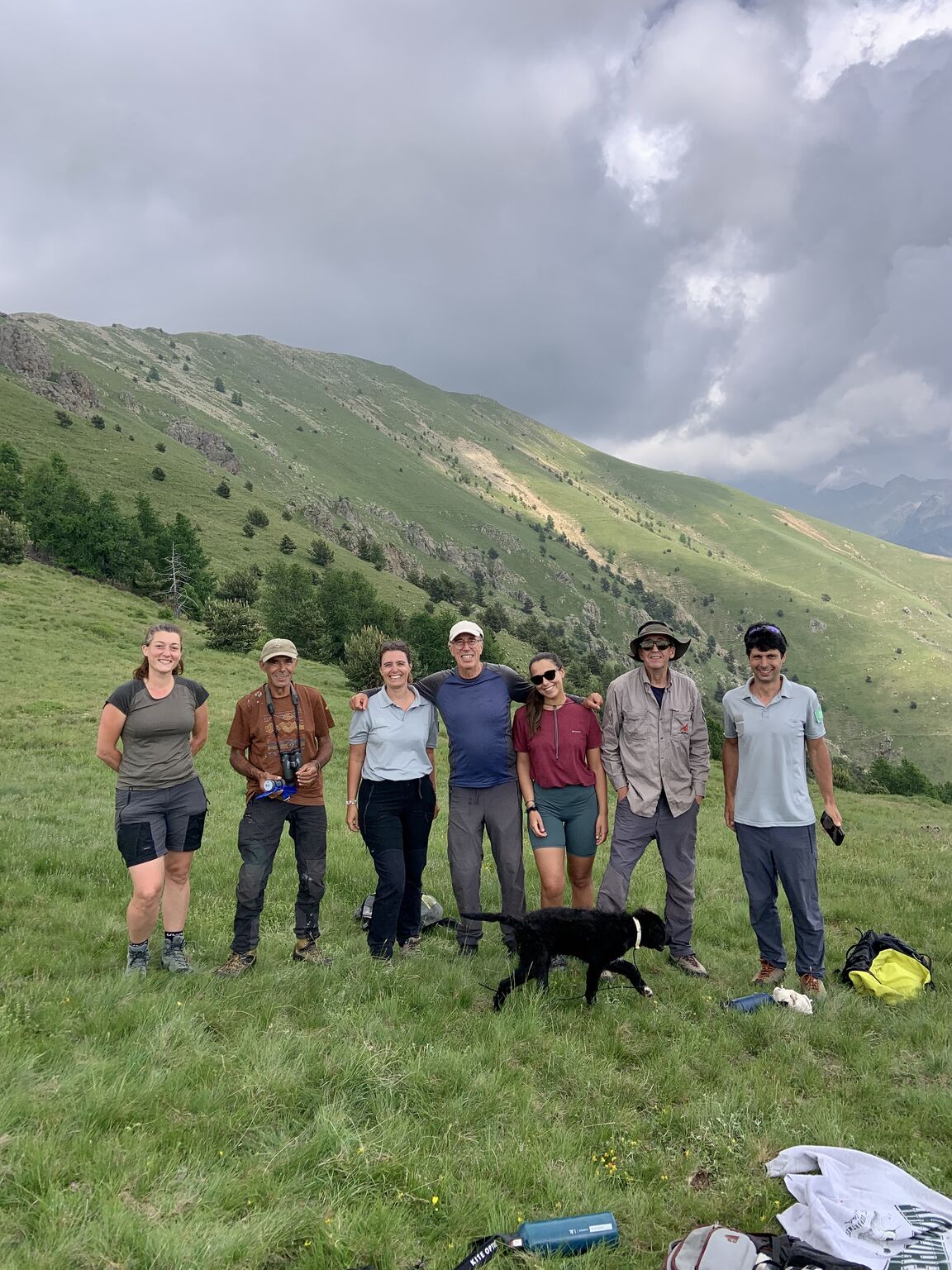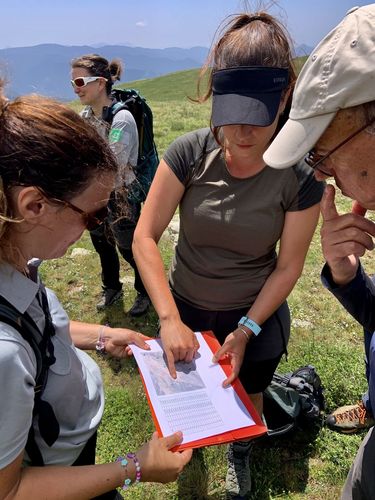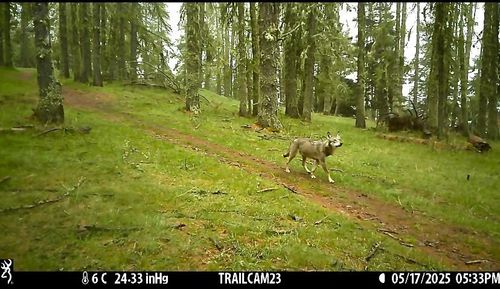
Field Visit in the Mercantour National Park: Testing Technology for Coexistence with Wolves
Events
Last week, the Human-Wildlife Initiative had the chance to participate in a field visit to the Mercantour National Park, to observe and celebrate the progress of one of its model projects.
A continuation of the LIFE WolfAlps EU program and the National Action Plan on wolf and livestock activities, the Mercantour National Park project seeks to test the effectiveness of anti-predation collars as a non-lethal solution for improving human-wolf cohabitation. These collars, which are equipped with GPS tracking and emit ultrasounds and light flashes in the case of a wolf attack, have been tested on smaller herds in open environments. We had the chance to witness firsthand how this project builds on these previous studies, testing the newly-improved technology in conditions more typical to the region: much larger herds facing stronger predation risks.
Although many farmers already apply the full range of recommended protections, wolves have adapted and the Alpes-Maritimes department remains one of French regions most affected by wolf attacks on livestock. After decades of extirpation, wolves returned naturally to this territory, and their presence is now a permanent part of the landscape. We cannot erase this predator, so we must adapt our behaviors and tools to make room for a shared space. By testing this innovative new technology to protect livestock in the Alpes-Maritimes, the Human-Wildlife Initiative’s Mercantour National Park project is making important progress towards sustainable coexistence.


